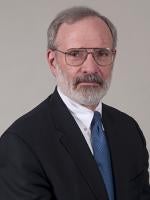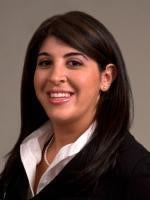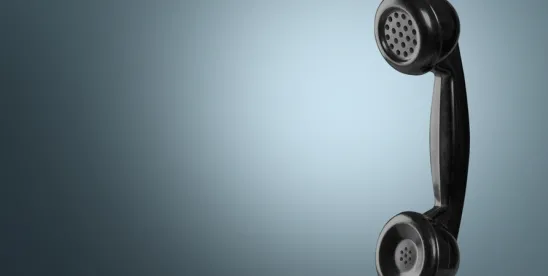This week's ruling of the U.S. Court of Appeals for the Third Circuit in Dominguez v. Yahoo, Inc. (Dominguez II) represents the first circuit court decision to address the Telephone Consumer Protection Act's (TCPA) "autodialer" definition following the U.S. Court of Appeals for the District of Columbia Circuit's opinion in ACA International. In that opinion, the D.C. Circuit vacated the portion of the Federal Communication Commission's (FCC) 2015 Declaratory Ruling that interpreted the term "capacity" in the autodialer definition to include a telephone system's latent or potential capacity to autodial.
The district court initially had granted summary judgment in favor of Yahoo in 2014 after concluding that the plaintiff had failed to show that Yahoo's text messaging system had the present capacity to function as an autodialer. While the plaintiff's appeal of that decision was pending, the FCC issued its 2015 ruling. As a result, the Third Circuit vacated the district court's judgment and remanded the case for further consideration.
On remand, the plaintiff amended his complaint to allege that Yahoo's system had the potential capacity to function as an autodialer. The district court again granted summary judgment in favor of Yahoo, concluding that Yahoo's system did not qualify as an autodialer based on its present capacity and, while the 2015 FCC ruling should not apply due to principles of retroactivity, even if it was to apply in this case, the plaintiff had failed to show that Yahoo's system had the potential capacity to function as an autodialer. The D.C. Circuit's ACA International opinion was issued while the plaintiff's appeal of the district court's second decision was pending.
In Dominguez II, the Third Circuit held that in light of ACA International, it must interpret the TCPA autodialer definition as it did prior to the issuance of the 2015 FCC ruling. As a result, the plaintiff could no longer rely on the argument that Yahoo's system had the potential capacity to function as an autodialer, and the sole issue on appeal was whether he had provided evidence to show that Yahoo's system had the present capacity to function as an autodialer.
The Third Circuit found that three of the plaintiff's four expert reports excluded by the district court focused only on potential capacity and that while the fourth report purported to address present capacity, it was missing "any explanation of how [Yahoo's system] actually did or could generate random telephone numbers to dial." Most significantly, despite acknowledging that it "may be true" that "under ACA International, certain limited modifications may nevertheless fall within the scope of present capacity," the Third Circuit still found that the three expert reports did not create a triable issue of fact regarding the present capacity of Yahoo's system.
The Third Circuit observed that the types of modifications discussed in two of the expert reports—which would have involved "several months of work and the integration of unnamed external programs or applications"—could "hardly be characterized" as the type of limited modification that the D.C. Circuit suggested in ACA International might show present capacity, and were "far closer" to the sort of overall reconstruction of a system that the D.C. Circuit excluded from present capacity. The third report had proposed that computer commands could be written into Yahoo's system to generate wireless numbers.
Although characterizing that proposed modification as "simpler in comparison," the Third Circuit observed that "the addition of a short sequence of code to any computer operating system bears a striking similarity to the downloading of an app onto any smartphone—the modification that was at issue in ACA International." (emphasis provided in original)
The Third Circuit concluded that the plaintiff ultimately could not "point to any evidence creating a genuine dispute of fact as to whether [Yahoo's system] had the present capacity to function as an autodialer by generating random or sequential telephone numbers and dialing those numbers." Instead, the Third Circuit emphasized, the record indicated that the system sent text messages only to numbers that had been individually and manually entered into the system—and not to random or sequential numbers. Observing that "[t]he TCPA's prohibition on autodialers is therefore not the proper means of redress," the Third Circuit affirmed the district court's orders excluding the plaintiff's expert reports and granting summary judgment in favor of Yahoo.
The narrowed—and statutorily correct—autodialer definition adopted by the D.C. Circuit and now the Third Circuit should have a real impact on TCPA litigation. A TCPA plaintiff should no longer be able to rest on the argument that a system has the potential capacity to autodial, and plaintiffs' experts should no longer be able to recycle reports resting on that faulty premise. The result should be more favorable decisions for compliant businesses.







 />i
/>i

